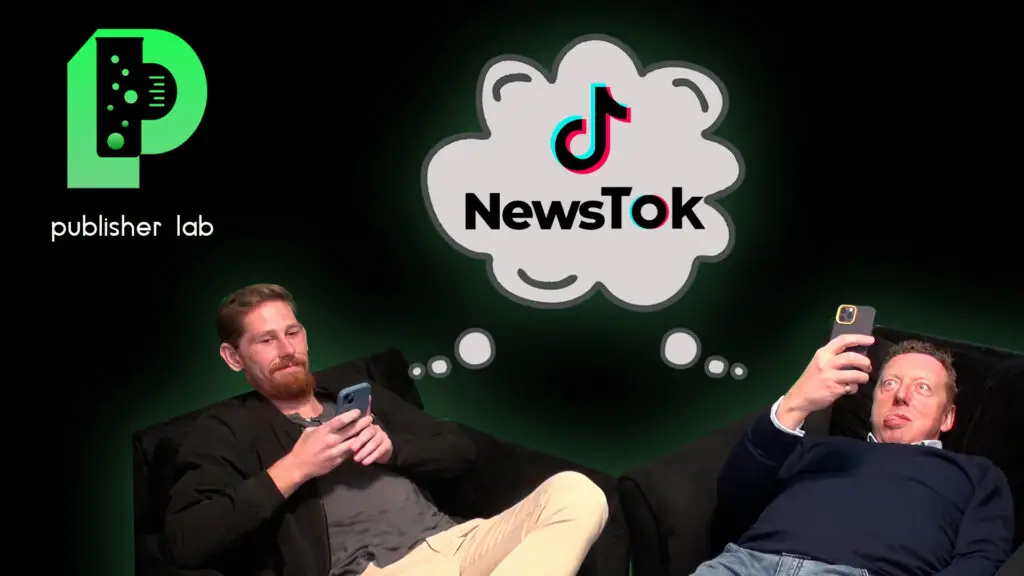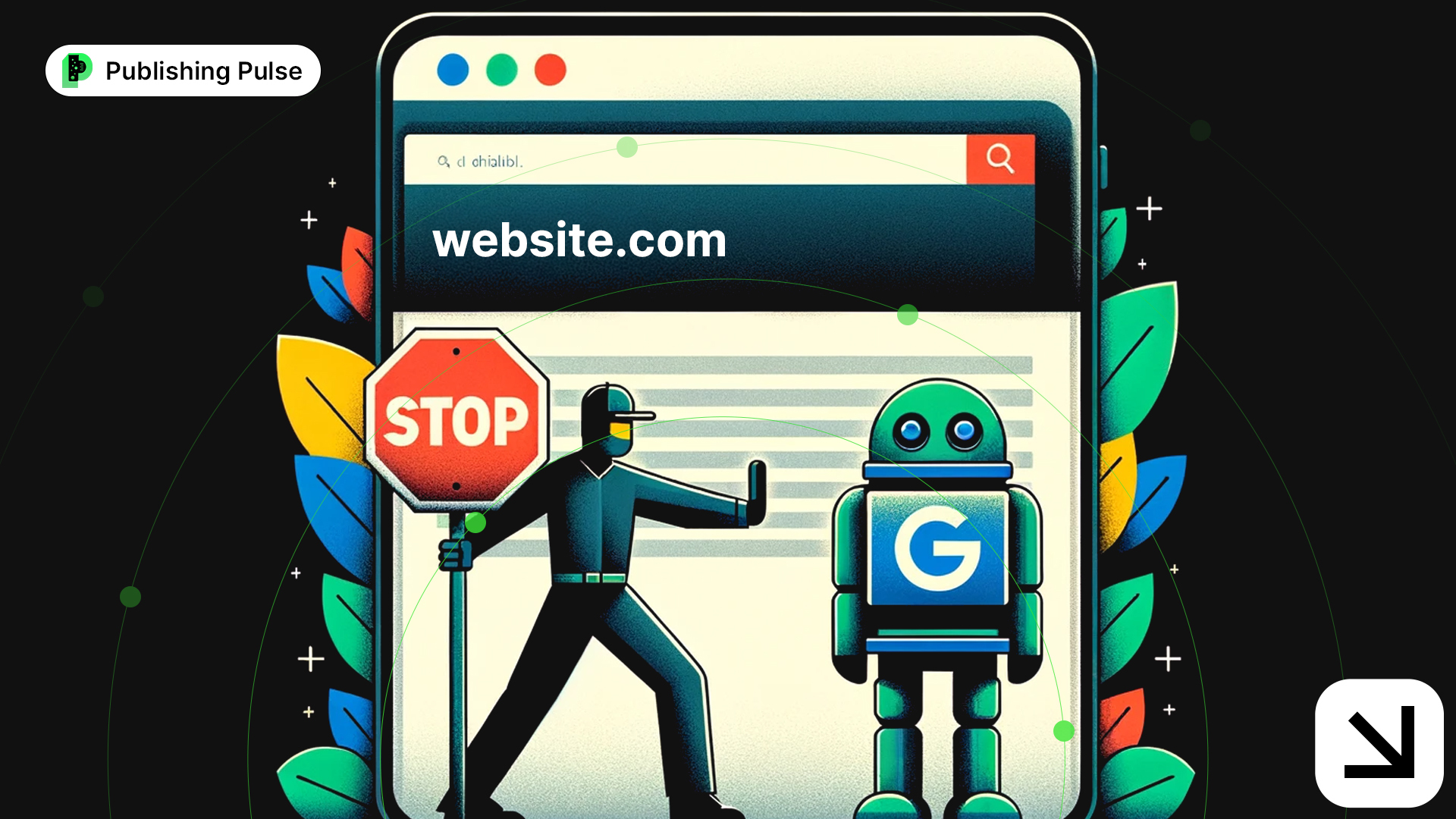Welcome to Publishing Pulse, your weekly source for industry updates in online publishing. Stay informed about the latest trends and breakthroughs in the ad ecosystem, content creation, SEO, AI technology, and monetization.
If you prefer to listen to industry news, you can tune in to The Publisher Lab podcast. New episodes are released weekly on Thursday.
More Americans Are Turning to TikTok for News
The consumption of news through TikTok has nearly doubled since 2020, reflecting a broader trend toward digital channels for news consumption among Americans. Social media platforms are becoming increasingly popular for news, 58% of Americans prefer digital media for news consumption.
Young adults under 30 are particularly drawn to TikTok for news, with a 255% increase in regular consumption since 2020. This shift is consistent across various age groups. Gender differences are also evident in platform preferences for news: women tend to prefer Nextdoor, Facebook, Instagram, and TikTok, while men are more inclined towards Reddit, X, and YouTube.
As social media platforms gradually reduce their support for news links and content, users looking for news are likely to turn more to search engines, traditional news websites, or news aggregation apps. In this evolving landscape, Google’s algorithm, which emphasizes authoritative and credible content, plays a crucial role. With the growing integration of conversational AI in search results, Google may become even more selective in sourcing news content, aiming to provide users with the most reliable information.
New AI Rules In Place For YouTube Creators
YouTube is introducing policies to regulate AI-generated and altered content on its platform. Creators are now mandated to disclose if their videos contain realistic AI alterations, such as deepfakes. This requires labeling and detailed disclosures in the video descriptions, with stricter requirements for sensitive content. Non-compliance could lead to serious repercussions for creators, including video removal, account suspension, or exclusion from the YouTube Partner Program.
The platform is empowering users and artists to manage AI-generated content. Viewers can request the removal of videos featuring an identifiable individual’s face or voice created without consent. Similarly, music partners have the right to ask for the removal of AI-generated music that imitates an artist’s voice, considering various factors such as parody and public interest.
YouTube’s enforcement of these policies will combine human and automated efforts, including its existing content moderation systems, random audits, and user reports. By implementing these measures, YouTube seeks to balance AI’s creative potential with user safety. The platform is focused on fostering a responsible AI development environment and working collaboratively with creators to shape a future where AI adds value while maintaining ethical standards.
Remote Work Leads to Rise In Ad-Blocking
Global ad-blocking usage, particularly on mobile devices, is on the rise, with 912 million active users across both mobile and desktop platforms. Despite mobile pages generating lower revenue per page (RPM) than desktop, the increasing shift of traffic from desktop to mobile is expected to boost the use of mobile ad blockers. This trend is exacerbated by the lack of third-party cookies in browsers like Safari and the overall decline of third-party cookies, challenging publishers’ ability to monetize their audience effectively.
“How I see ad blockers generally on sites, it’s the cost of business, and there’s going to be a plateau on the percentage of users that use the ad block,” says John Cole on this week’s episode of The Publisher Lab podcast. “However, I definitely see more users understanding that trade-off on ads in exchange for free content. And that trade off, I think, is becoming more clear as the days go on. And because of that, I think more users are going to be willing to like, okay, ads are on this page. I’ll just deal with it… I think we shouldn’t get over-focused on it. I think everybody worries about the money they’re losing. I think it’s more important to focus on the user experience and if you’re giving the users what they want.”

In the U.S., downloads of the top five ad-blocking apps saw a 17% increase from the second to the third quarter of 2023, as reported by App Annie.
Over 250 Websites Are Blocking Google-Extended
Many websites are now blocking Google-Extended, a tool by Google allowing site owners to restrict their content from AI models like Bard and Vertex AI generative APIs. This development, highlighted in research by Detailed.com and reported by Search Engine Land, shows a significant 180% increase in such blocks over the past month. The growing trend to block Google-Extended is motivated by concerns over AI companies potentially profiting from or competing with content sourced from these websites.
Several prominent websites and media groups have implemented this block, including Ziff Davis properties (like PC Mag and Mashable), Vox properties (such as The Verge and NYMag), The New York Times, Condé Nast (including GQ, Vogue, Wired), and Yelp. However, blocking Google-Extended in robots.txt doesn’t prevent the content from appearing in Google’s Search Generative Experience (SGE) or being used to train SGE. Complete opt-out would require blocking Googlebot, which also means removal from Google Search results. An alternative is using the “nosnippet” tag to opt out of SGE overviews, allowing websites to maintain their presence in standard search results while limiting their participation in Google’s generative search features.
Google Introduces Ranking Improvements
Google has rolled out ranking enhancements to better feature content with personal insights and experiences, such as those found on social media, blogs, and forums. This update aims to bring to the forefront “hidden gems” of the web, where individuals share their first-hand knowledge and personal perspectives. While distinct from the helpful content system, this change is integrated into Google’s core ranking algorithm.
The primary goal of these improvements is to promote authentic, valuable content that offers genuine help and information to users. Google is utilizing various signals related to content quality and authenticity to decide which pieces should be elevated in search results. This update could potentially alter the ranking of websites and specific types of content for certain search queries. Consequently, SEO professionals should closely monitor these changes in search results and adjust their strategies to align with Google’s renewed focus on authentic and insightful content.
Site Quality Is Simple To Attain, Says Google
In a recent podcast, Google experts John Mueller, Martin Splitt, and Gary Illyes delved into the concept of site quality. They clarified that comprehending site quality isn’t as complex as it might seem and suggested that reading search engine documentation could provide valuable insights. Unlike technical issues, which can be objectively assessed using tools, site quality is more subjective and hinges on user satisfaction.
The trio’s discussion underscored the importance of adding value to users, presenting unique content, and steering clear of repetitive material. For SEO professionals, their advice centered on selecting achievable goals. This includes focusing on less competitive niches and producing original, helpful content. They stressed the significance of maintaining an open mind and avoiding rigid thinking in evaluating site quality.
The overarching theme of the conversation was that site quality transcends mere technical optimization. It’s primarily about delivering real value and aligning with user intent.


